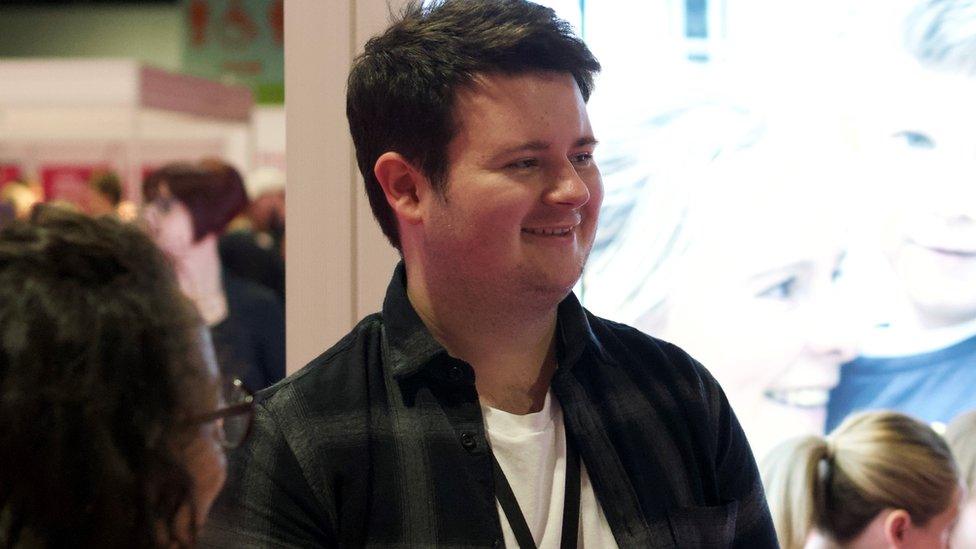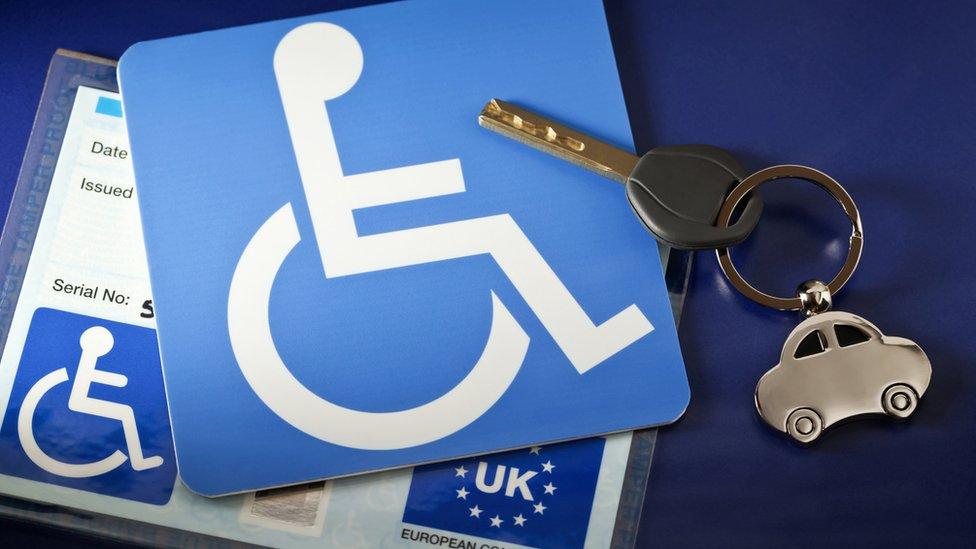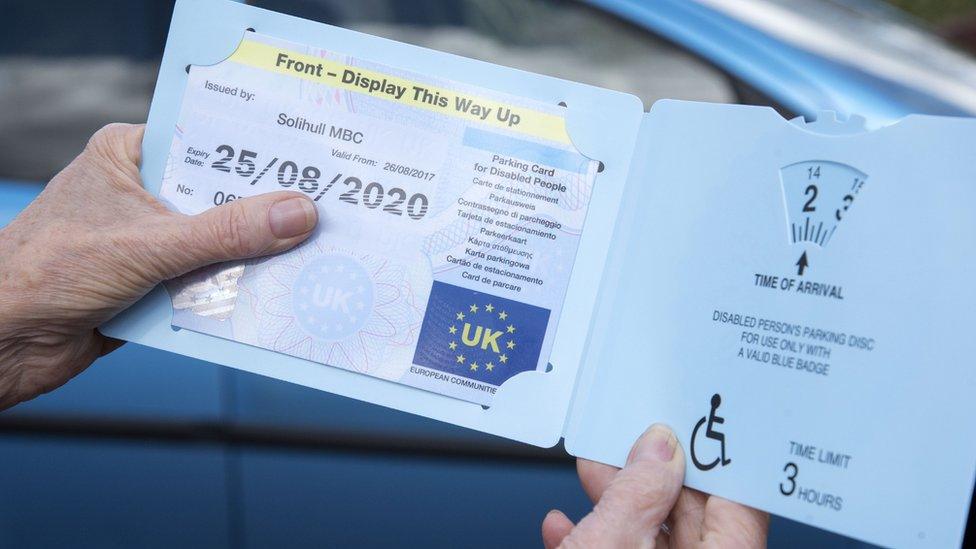'How a blue badge will help with my hidden disability'
- Published

Connor Ward has autism and says a blue badge will help him
"The amount of times I've gone to Asda and not been able to find a space straight away and had to leave - it's too stressful."
Connor Ward has autism and says having a blue badge will makes things like shopping easier.
"Instead of putting myself through having to squeeze into tight spaces, I just don't do it."
He's one of the people who has a hidden disability who can now apply for a blue badge in England.
The permit helps people access shops and services, by allowing them to park close to their destination.
'People say 'why are you parked in the disabled place?'
The 21-year-old from Nottingham says he will definitely be applying for a blue badge but says he is worried he'll face questions from some people because he doesn't have a physical disability.
Connor says his mum has a blue badge for her disability and when they've been shopping, he's faced questions.

People with hidden disabilities, such as anxiety can apply for a blue badge parking permit in England
"People say 'you shouldn't be there' or 'why are you parked in the disabled place?'
"The judgment is from the wider disabled community as opposed to the general public," Connor adds.
Connor feels in order for attitudes to change, things need to change.
"It would be nice to see a blue badge symbol that isn't a person in a wheelchair.
"Lots of disabled loos are changing to show invisible disabilities as well, but ultimately if you're going to allow more people to have blue badges you will need more parking spaces."
'My blue badge application was rejected'
Elizabeth Pennifold, 20, has Crohn's Disease and recently applied for a blue badge to make things like going to the shops or having a day out easier.
"When I am tired, I feel like I am going to fall over so if I am parking close to where I am going, the likelihood of that is probably a bit less.

Elizabeth Pennifold says there needs to be more awareness around hidden disabilities
"With my Crohn's, if I get an urge I need the toilet my fatigue will come on straight away. I get hot and sweaty and it hits you all at once," she adds.
She applied for a permit about a month ago and says her application was rejected.
"When I applied for the blue badge I was already worried and conscious and felt a bit bad for doing it."
Elizabeth says she will now reapply but feels when it comes to hidden disabilities, a lot of people don't know what it is.
"I look like a young fit girl, you wouldn't look at me and think there's anything wrong with me at all."
People with conditions such as autism or anxiety disorders can apply for the badge - although eligibility will be decided by local councils in England.
Scotland and Wales already have similar rules to include some mental health issues, but the criteria are yet to be altered in Northern Ireland.
The government said it would provide an extra £1.7m to help councils cope with the expected increase in applications.
The charity, Crohn's & Colitis UK says it welcomes the changes but has some concerns.
In a statement it said: "Even under the new criteria, unless someone has very considerable pain whilst walking, experience severe or overwhelming anxiety whilst walking or that the act of walking from a car to a destination, could cause serious harm to themselves or others, it will still remain difficult for people living with Crohn's or Colitis to successfully apply for a Blue Badge."


Follow Newsbeat on Instagram, external, Facebook, external, Twitter, external and YouTube, external.
Listen to Newsbeat live at 12:45 and 17:45 weekdays - or listen back here.
- Published15 June 2019
